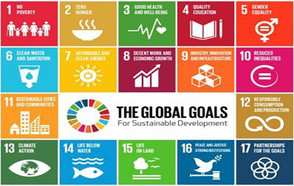
Photo credits: @UN-Habitat
By Esteban Leon – Chief a.i. Risk Reduction Unit Head, City Resilience Profiling Programme (CRPP) UN-Habitat.
Urbanisation continues to be the defining megatrend of our time and shows no sign of slowing down. While cities can be centres of innovation, growth, and prosperity, if poorly managed they can quickly become the backdrop for increased inequalities and unsustainable practices, and even a detriment to life.
Cities will therefore play a defining role in achieving many of the 17 Sustainable Development Goals (SDGs) and this is acknowledged in SDG11 for inclusive, safe, resilient and sustainable cities. Among the characteristics set out in SDG11, resilience is arguably one of the most challenging and least understood among many local governments. Although no universal definition exists, for UN-Habitat, a resilient city must be able to assess, plan and act to prepare and respond to hazards (natural and man-made, sudden and slow-onset, expected and unexpected). The shift away from simply addressing ‘natural disasters’ is important as cities today must contend with rapid migration, unemployment, and lack of housing affordability – to name just a few of the non-natural shocks and stresses – which are occurring with increased magnitude and unpredictability.
Local and regional governments are uniquely placed to lead the charge for resilience and address the major challenges in our cities due to their unique knowledge of local territories and communities. Their commitment to this vision was demonstrated through the Habitat III process, yet in some cases the action required may exceed their capacity, knowledge and/or resources. Ensuring that they can access the necessary resources is a priority not only because resilient cities can protect and enhance the lives of inhabitants, but because they are more likely to maintain development gains, foster an environment for investment, and drive further transformation.
As the United Nations programme promoting sustainable urban development, UN-Habitat is working to provide cities with the necessary tools and support to understand risks, identify actions to address them and engage the relevant stakeholders to ensure long-term impact. The resilience-building approach promoted by UN-Habitat is people-centred, which means that not only are urban inhabitants the main beneficiaries of our work, but resilience-thinking is incorporated into the numerous organisations, companies, institutions, and bodies that operate in the cities.
UN-Habitat along with UNISDR and EC-DEVCO are supporting city administrations through the Making Cities Sustainable and Resilient action. This initiative is supporting over 200 cities and has increased the number of cities committed to the Making Cities Resilient Campaign to almost 4,000.
With a growing number of local government partners from the initiative and experiences to share from cities, academia, NGOs, and the private sector, UN-Habitat is convening the Barcelona Resilience Week from the 11th-16th November 2018 to host workshops, dialogues and discussions focused on sharing experiences and building partnerships for the action
- Read more about Barcelona Resilience Week in the dedicated website.
- More information about this event.













